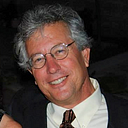Open Letter to AP Social Studies Teachers, New or Experienced
And who haven’t attended the annual reading or have only been to one or two.
Have you noticed that now and then, on various AP social studies Facebook pages and online teacher communities, a small handful of experienced teachers who have attended multiple readings claim that only those with extensive teaching and reading experience, like themselves, are truly qualified to show others how FRQs should be scored — and that the only way to truly learn from these experts is to attend a reading?
Well, I’ve certainly noticed, and after looking into this more closely, I’ve found that those who most often make this claim are typically not section leaders, room leaders, or chief readers. Rather, they are usually readers without formal leadership roles, or at best, table leaders working their way up — which means they aren’t the only ones who can speak authoritatively on what works and what doesn’t in scoring FRQs, or on how best to advise students on crafting effective responses.
I’ve also noticed that today, many reading room leaders — especially section leaders, room leaders, and even chief readers — past and present — are more than willing to share their insights openly if you reach out via email. They embrace the College Board’s culture of open knowledge-sharing. Put simply, they are happy to provide much guidance over the phone or by email — without pressuring you to attend a reading or shaming you if, for any reason, you choose not to.
One more thing I’ve noticed is that today, there’s an increasing number of teachers, like myself, who, for good reason, have never attended a reading yet confidently provide spot-on FRQ writing and scoring strategies on Facebook and other social media platforms. Why are we so confident in what we put forward? The answer is simple: we regularly reach out to reading room leaders to stay informed and updated, as well as to other well-connected teachers who don’t attend the reading but maintain strong connections with reading room leaders.
Bottom line: Today, you don’t need to hop on a plane, deal with travel hassles, or spend extra money on incidental travel expenses that the College Board won’t reimburse to learn what works best in scoring FRQs or in advising students on crafting effective responses. You also don’t need to rely solely on lower-level reading room teachers for professional development — especially those with a reputation for pressuring others to attend a reading or shaming them for not doing so. There are many other ways to gain these insights.
That said, let me be clear: I’ve been told repeatedly, and I believe it to be true, that attending the reading can and probably will prove a valuable learning experience. But it’s equally important to recognize that today, thanks to accessible resources, a culture of knowledge-sharing among section leaders, room leaders, chief readers, and well-connected teachers who don’t attend the reading, you can also gain all the FRQ writing and scoring insights you need from home and for free.
